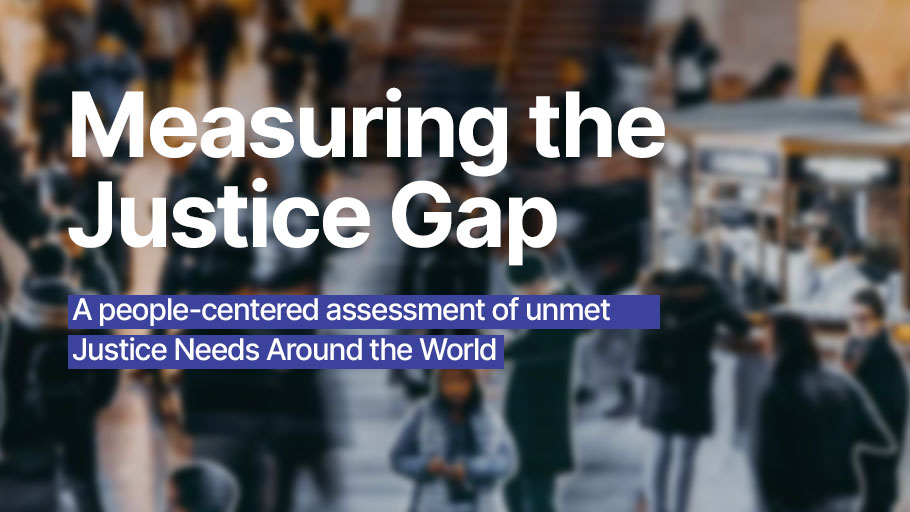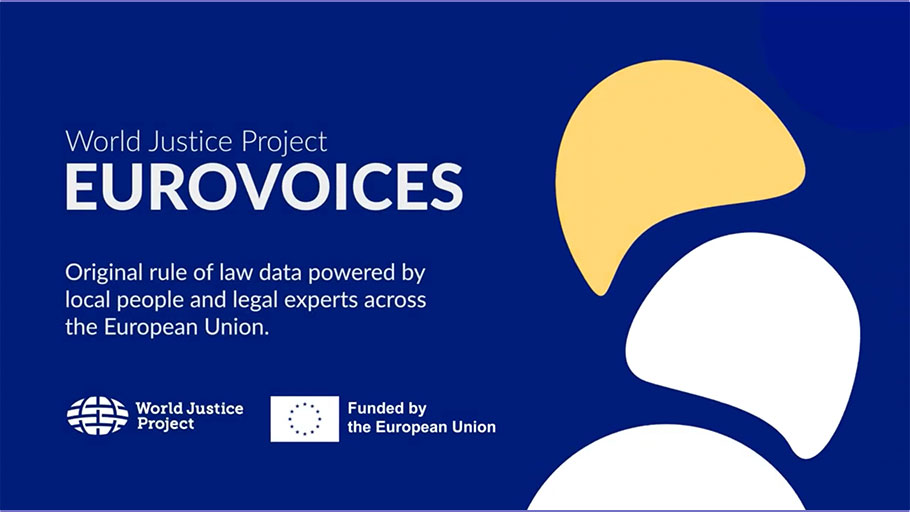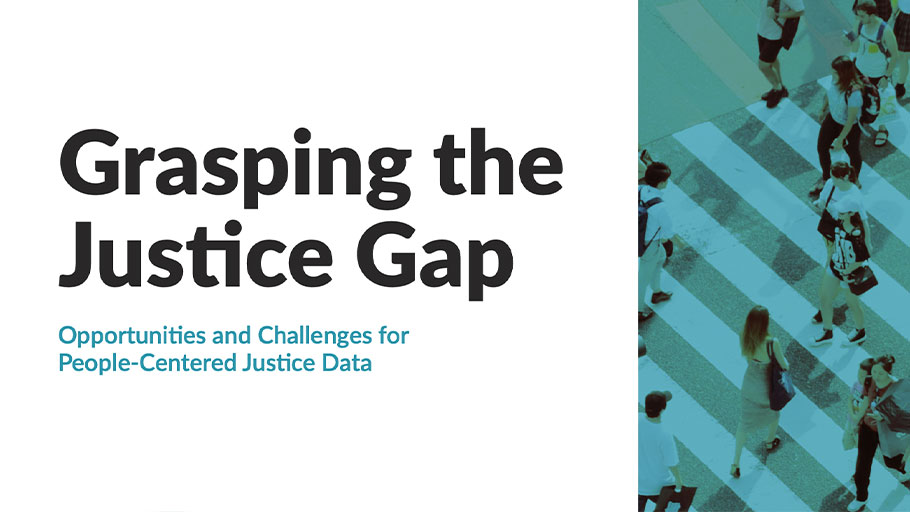Our Access to Justice (A2J) research and tools help decision makers, practitioners, and communities close the justice gap worldwide. By centering on people’s experiences and using data to drive reforms, we can design justice systems that are fairer, more inclusive, and more effective.
We advance people-centered justice through two main areas:
Data & Evidence
- Measuring people’s legal needs and everyday justice problems.
- Compiling and sharing global surveys.
- Developing indicators and frameworks with key partners.
Tools & Innovation
- Supporting decision-makers and justice institutions with practical frameworks and evidence.
- Developing ICT-driven solutions to expand access to justice.
Global Needs Surveys
The WJP Global Legal Needs Survey (GLNS), has been conducted in over 100 countries and jurisdictions between 2017 and 2024, representing the voices of more than 100,000 people. It captures data on how ordinary people deal with their legal problems, highlighting the most common legal problems, respondents’ assessment of their legal capability, and sources of help. The data collected via the WJP GLNS informs the following analyses:
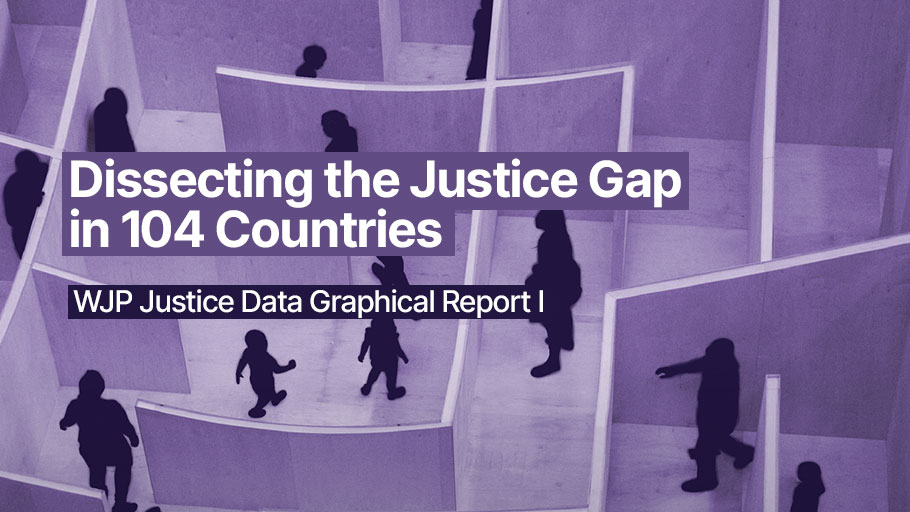
Dissecting the Justice Gap in 104 Countries: WJP Justice Data Graphical Report I (2023)
Analyzes how economic development affects justice outcomes, provides estimates of the SDG indicator 16.3.3 for dozens of countries, and estimates and breaks down the civil and administrative justice gap at the national levelnational justice gaps. It also provides updated estimates of, and costs of legal problems.
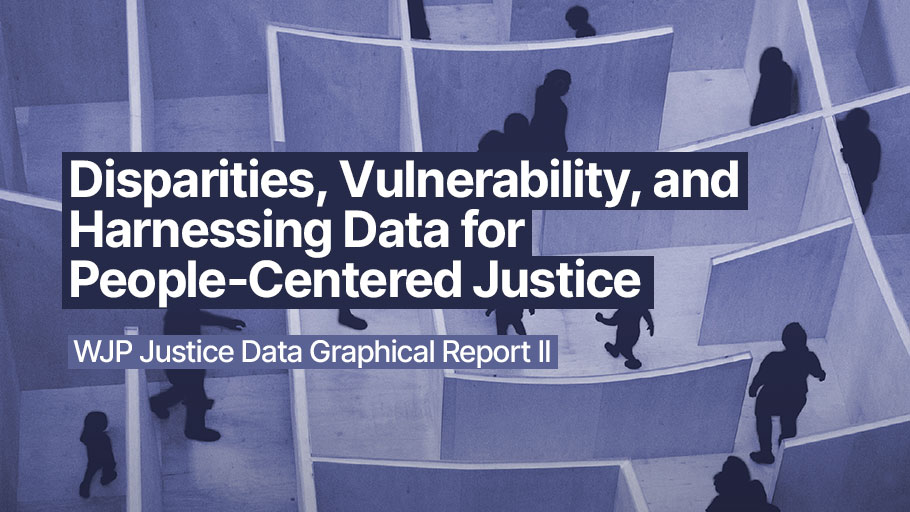
Disparities, Vulnerability, and Harnessing Data for People-Centered Justice: WJP Justice Data Graphical Report II (2023)
Examines impacts of gender and wealth on access to justice and the global use of customary and informal dispute resolution.
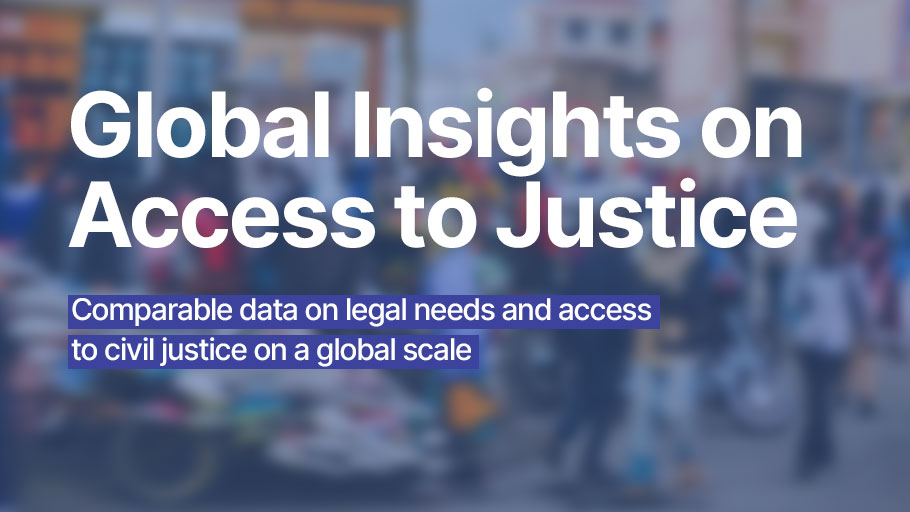
Global Insights on Access to Justice (2019)
First globally comparable national estimates on legal needs and access to civil justice, covering 100,000+ people in 101 countries.
Data Ecosystems
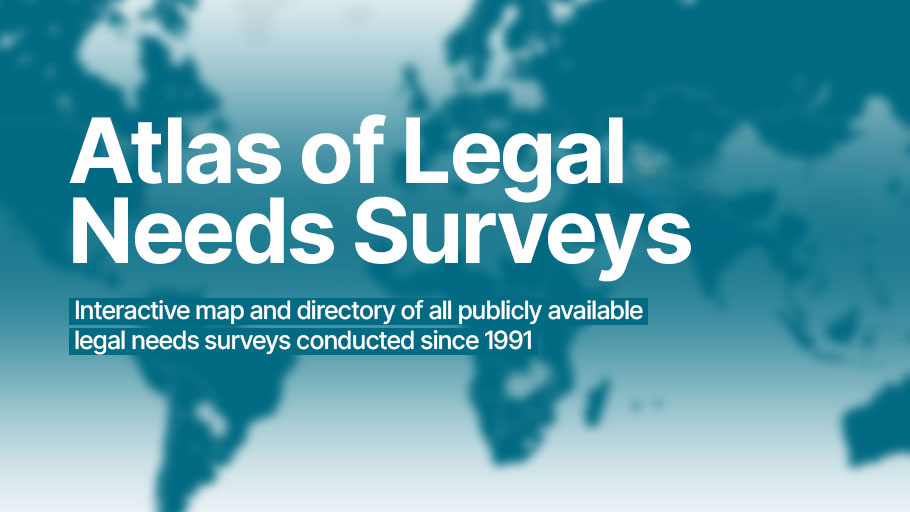
Atlas of Legal Needs Surveys
Interactive map of 250+ legal needs surveys conducted in 110 countries and jurisdictions since 1991. A resource for decision makers that also helps identify gaps in justice data from people’s perspectives—showing who experiences legal problems, how they arise, and why many do not seek help. Updated semi-annually and freely accessible.
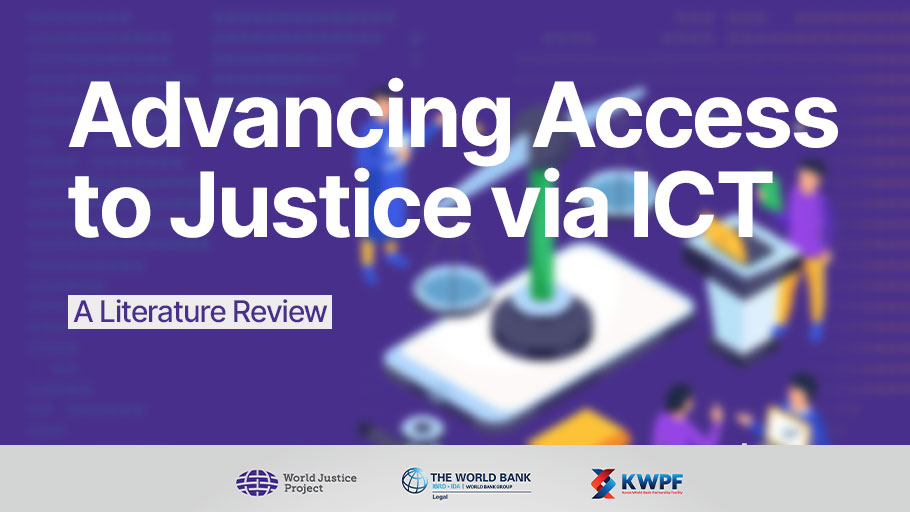
Advancing Access to Justice via Information and Communications Technology: A Literature Review (2025)
This report highlights how justice technologies can enhance access to justice. At the same time, it cautions that these tools carry significant risks and are hindered by barriers to implementation.
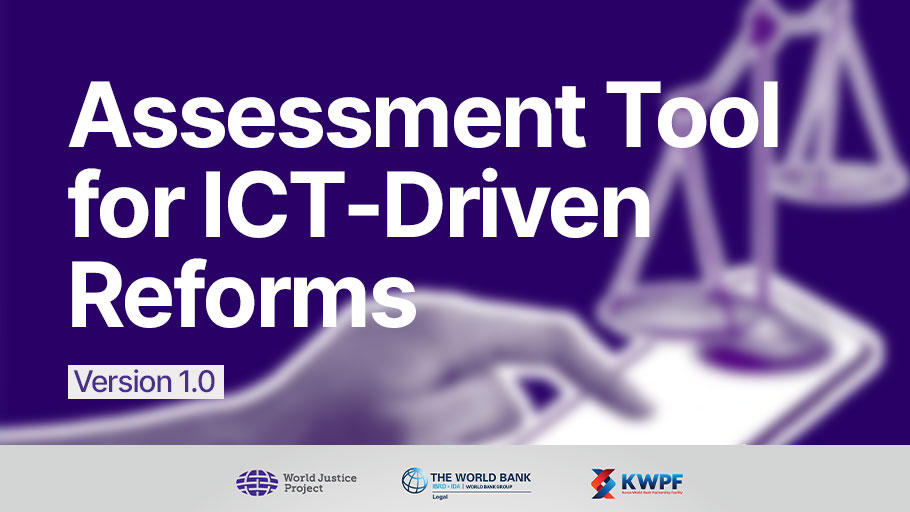
Assessment Tool for ICT-Driven Reforms in Family Justice (2025)
Helps justice actors use technology more intentionally to close gaps in access to justice, starting from people’s unmet needs and designing solutions around them. It provides practical guidance to identify systemic barriers, plan sustainable ICT adoption, and ensure reforms improve access rather than deepen inequality.
To help build robust justice data ecosystems, WJP currently works with OECD, HiiL, UNDP, the Nuffield Foundation, and the Dominican Republic’s Judiciary to design and implement justice indicator frameworks, ensuring justice systems are oriented toward solving people’s needs.
As a central focal point of our work, access to justice is explored in standalone products and is a cross-cutting theme in the WJP Rule of Law Index, EUROVOICES, the Mexico States Index, and our country-specific reports
Stay tuned for the results of these collaborations! Sign up for our listserv and feel free to message us at [email protected]


